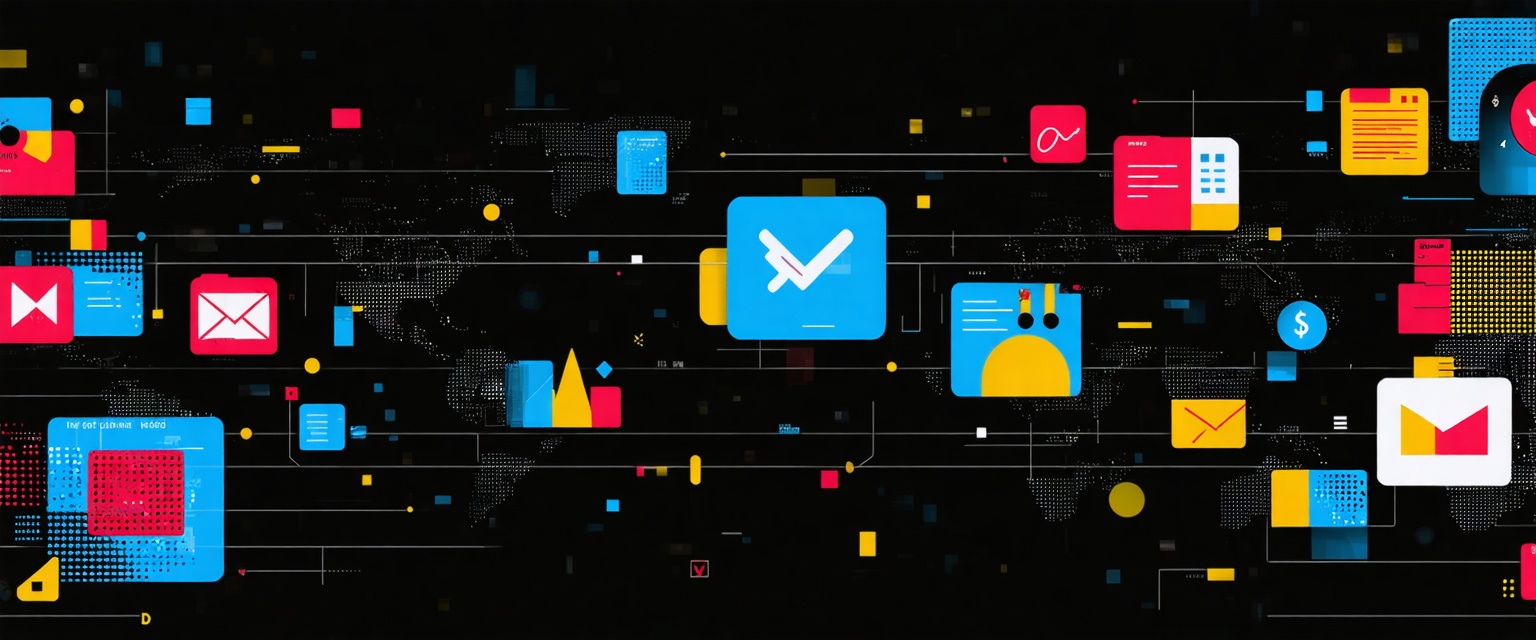Discover how AI agents automate Buildertrend portal tasks, saving client relations managers time while enhancing client personalization and satisfaction.
Optimizing Buildertrend Client Portal Personalization with AI Automation for Managers
Customizing Buildertrend portals manually consumes time with endless layout tweaks, notification changes, and client requests. This slows productivity and keeps client relations managers focused on admin instead of driving growth.
Thanks to advancements in Agentic AI, tedious tasks like personalizing portals, syncing data, and managing updates are now handled automatically.
Datagrid’s AI agents simplify portal management, giving client relations managers more time to focus on building strong client connections.
This article explains how AI agents automate Buildertrend portal customization for client relations managers.
What it Means to Personalize the Buildertrend Client Portal
True portal personalization goes far beyond adding your logo or using a client's name in emails. It's about tailoring information flows to match each client's unique style, their communication habits, project involvement, and decision-making approach.
Every day, you're making dozens of small decisions about what each client sees. Executives get concise weekly summaries while homeowners who want to track every nail receive daily updates.
Budget-focused clients see cost tracking front and center, while those obsessed with deadlines get milestone progress reports. You pick the right channel based on their actual behavior, email, text, or in-portal notifications.
Effective personalization changes throughout the project lifecycle. A client who checks updates hourly during foundation work might be fine with weekly check-ins during interior finishing.
The real challenge? Delivering this flexibility without drowning your team in customization tasks or creating chaos in your workflows.
Building Better Client Relationships Through Personalization
Let's be honest, in construction's competitive landscape, personalized client portals aren't just nice to have, they're how you stand out.
When you're running six-figure projects with tight deadlines, clients expect communication that gives them exactly what they need, not generic updates buried in jargon, but relevant information that arrives right when they need it.
Effective personalization puts you in control of what clients see, how they receive it, and when updates arrive, fundamentally improving audience relationships. Clients gain visibility into exactly what matters to them, whether that's budget tracking, critical path activities, or submittal reviews.
This targeted approach builds the trust that turns one-time clients into your biggest advocates.
The benefits hit immediately: fewer panicked calls about project status, less email back-and-forth, and clients who actually understand what's happening on their job site.
Personalized portals kill the miscommunication that ruins construction relationships. Building this transparency directly boosts your bottom line through higher satisfaction scores and more referrals.
For client relations managers juggling multiple high-stakes projects, personalization isn't optional, it's how you stay sane while delivering experiences that win the next contract.
The Inefficiency of Manual Portal Personalization
Manual personalization creates massive bottlenecks that prevent you from scaling client relationships. These time-draining processes eat resources that should focus on strategic client engagement, not administrative busywork.
Companies implementing an AI-driven platform have cut model deployment time from three days to three hours, showing just how much time you're wasting.
Compiling and Formatting Weekly Project Updates
You burn hours per client each week gathering data from schedules, budgets, field reports, and subcontractor updates. With multiple projects running, this admin work quickly becomes overwhelming. You're doing the same data compilation tasks over and over instead of strengthening client bonds.
Managing Diverse Client Notification Preferences
Every client wants different communication rhythms, such as daily emails, weekly summaries, or milestone alerts. Tracking and adjusting these preferences manually creates a complex web that's bound to fail.
When you forget a client's specific needs or miss mid-project preference changes, important updates get delivered wrong. Trust breaks down fast.
Customizing Dashboards for Individual Clients
Setting up dashboards requires individual configuration for each client based on what they care about. Some want budget details, others focus on timeline visuals or photo updates.
Each customization demands separate attention and testing as project phases shift. This manual approach falls apart when you're handling multiple projects at once.
Handling Ad-Hoc Client Requests
Random requests for custom reports, document access, or specific data create constant workflow disruptions. These unplanned tasks pile up pressure on your daily work.
Whether a client needs cost breakdowns or access to subcontractor messages, these requests demand immediate attention, pulling you away from more important work.
Ensuring Data Accuracy Across Multiple Channels
Keeping information consistent across emails, portal updates, phone calls, and project documentation without automation significantly raises error risk.
Manual cross-checking between systems creates opportunities for mistakes that confuse clients and damage trust in your management abilities.
How AI Agents Automate Buildertrend Client Portal Personalization
AI agents take over portal management by automating tasks that typically eat hours of manual work. Instead of configuring individual settings or compiling updates by hand, you can focus on building client relationships while AI handles the routine personalization tasks.
Ingesting Project Data and Client Preferences
AI agents constantly collect data from multiple streams to build comprehensive profiles. They pull information from project updates, timeline changes, budget adjustments, and communication logs while tracking how clients actually use the portal.
The system notices which sections clients visit most, how long they spend on different content, and which communication channels they prefer. Knowledge integration systems connect your company's internal information with AI capabilities, making it easier to use data from Buildertrend and connected apps.
Dynamic Generation of Tailored Updates
AI agents create customized progress reports that match each client's specific interests rather than generic updates.
If a client always checks budget tracking, their updates highlight cost milestones and financial progress. For clients who care about visual progress, the AI emphasizes photos and completion percentages.
The system adjusts content complexity based on the client's background and engagement patterns, making information easy to digest for each person and further enhancing personalization.
Configuring Notification Settings Automatically
AI agents study client response patterns and engagement timing to optimize notification preferences without manual setup, leveraging AI-powered email outreach techniques.
They identify when clients typically read messages, which updates get the most engagement, and how often clients want to hear from you.
Communication integration provides 24/7 availability and seamless information sharing, ensuring clients get timely updates through their preferred channels without notification overload.
Personalizing Dashboard Content
Client dashboards automatically adjust based on the current project phase, client role, and demonstrated interests. AI agents prioritize relevant widgets and information panels, hiding less important data to keep things clean.
During foundation phases, concrete contractors see material delivery schedules prominently, while clients nearing final inspections see completion checklists and walkthrough scheduling options.
Natural Language Processing for Report Summarization
AI agents process daily logs, technical documentation, and field reports to create clear, jargon-free summaries clients can actually understand. Complex construction terms get translated into plain language, and lengthy technical reports become concise progress stories.
In this way, AI agents streamline repurposing complex construction documentation into client-friendly summaries. This capability shines when communicating specialized trade work or regulatory compliance updates.
Proactive Personalization Suggestions and Actions
Through AI-driven engagement strategies, AI agents monitor project milestones and client engagement to proactively recommend or implement personalization changes. When Buildertrend reduced model deployment time from three days to three hours using advanced data science tools, it showed how AI can speed up personalization.
The system anticipates client needs based on similar project phases and automatically surfaces relevant information before clients need to search for it, creating a more intuitive experience.
Datagrid: AI-Driven Software Integrations for Construction
Datagrid's AI integration layer connects your construction tech stack and automates workflows that consume your team's time. By creating seamless connections between platforms, Datagrid eliminates the manual data transfer that drains productivity.
The system deploys AI agents that work across your existing software, extracting and synchronizing critical information automatically.
Seamless Cross-Platform Data Exchange
Datagrid links your existing software platforms so its AI agents can extract, analyze, and synchronize information between previously isolated systems.
This removes the need for manual data entry and eliminates inconsistencies across project tools, ensuring everyone works with the same up-to-date information.
Automated Drawing and Model Analysis
By utilizing AI automation for scanned documents, Datagrid's AI agents process thousands of CAD drawings and BIM models to extract quantities, flag conflicts, and generate takeoffs without manual review.
The system identifies critical data points from construction documents and organizes them for immediate use, saving countless hours of technical review.
RFI and Submittal Workflow Acceleration
Datagrid monitors the status of RFIs and submittals across all systems in real time.
AI agents automatically route documentation to the right stakeholders and flag delays that could affect the critical path, helping teams respond faster and avoid project hold-ups.
Change Order Intelligence
AI agents within Datagrid analyze change orders across projects to detect pricing anomalies, scope shifts, and approval trends.
By cross-referencing proposed changes with original contract terms, the system highlights risk and provides data-driven cost impact estimates before issues escalate.
Schedule and Budget Integration
Datagrid integrates your scheduling tools and financial systems to give AI agents full visibility into resource allocation, cash flow, and dependencies.
This helps spot conflicts before they escalate and ensures crews and materials are scheduled for maximum efficiency throughout project execution.
Field Report Consolidation
Datagrid automates the collection and compilation of daily field reports, safety observations, and quality inspections.
Its AI can integrate with visual documentation platforms to map real-time site conditions to project plans, creating a comprehensive record of construction progress.
Historical Project Data Mining
By analyzing documentation from completed jobs, Datagrid enables your team to surface best practices, refine estimating processes, and predict risks in future work.
The platform's AI learns from every project to continuously improve performance, creating a growing knowledge base specific to your company's operations.
Datagrid's AI integrations eliminate data silos, reduce duplicate entry, and give construction firms complete visibility across their tech stack. The result: faster execution, fewer errors, and improved profitability.
Simplify Construction Tasks with Datagrid's Agentic AI
Don't let data complexity slow down your team. Datagrid's AI-powered platform is designed specifically for teams who want to:
- Automate tedious data tasks
- Reduce manual processing time
- Gain actionable insights instantly
- Improve team productivity
See how Datagrid can help you increase process efficiency.













